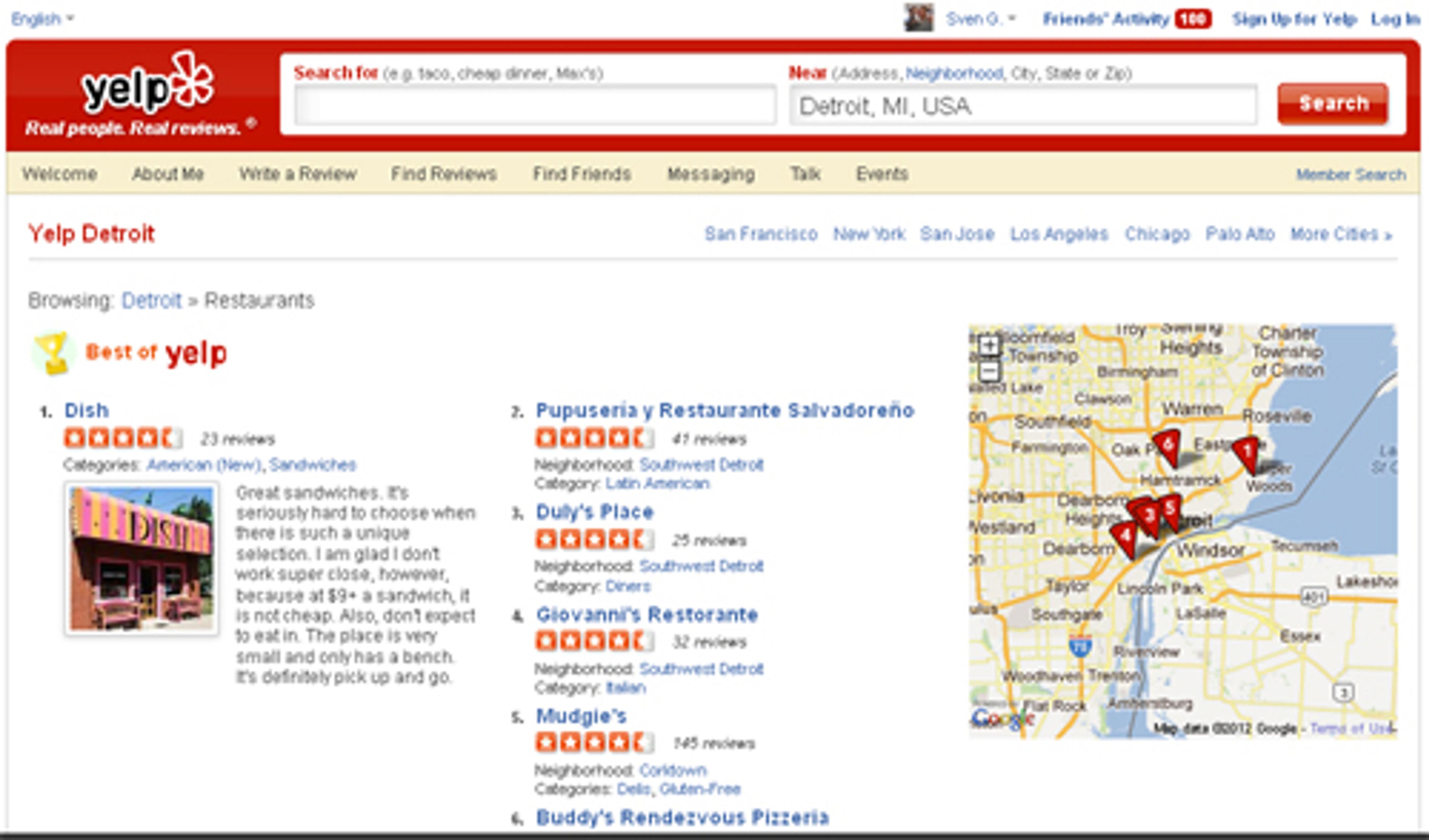Do Online Restaurant Reviews Help Inform Consumers, or Just Hurt Businesses?
Guest Blogger
| 4 min read

This guest post is from Leah Blinstrub, a registered dietitian and health coach with Blue Cross Blue Shield of Michigan. A believer in the importance of good-tasting food and good nutrition, Leah enjoys cooking, being outdoors with her dog Oscar and spending time with her 1 year-old son and husband.
When I picture a food critic, the image that comes to mind looks like Anton Ego from the Disney movie “Ratatouille.” The character is tall, thin and impersonal; he wears a stuffy-looking suit and tastes food in tiny bites. He comments on the compatibility of spices in the dish, the appearance of the plated items, and the skill of the chef’s preparations. His report sounds sophisticated, flows like a poem, and you feel educated because… he is a food expert.
With the boom of social media and sites like Yelp and Urbanspoon, food criticism has experienced major changes. “Culinary experts” are no longer the only people providing food commentary — more often than not, reviews are coming from what you might consider average Joes.
It’s nice to be able to flip to the Web for recommendations on restaurants, but when it comes to online comments, how does this new age of information sharing impact our choices and the restaurant business as a whole? How do customers utilize the information available and decipher the personal tastes and dining preferences behind comments that paint a picture of bad food, bad service and bad restaurants?
Comparison Shopping
Michael Luca published a study in 2011 that examined the impact online comments from the review site Yelp had on restaurant revenue. His findings suggested that every 1-star increase in ratings translated to a 5 to 9 percent increase in revenue for independent restaurants. Clearly our words have an impact.
One could argue that food critics give more accurate recommendations because their opinions are based on “credentialed expertise” and experience. Pete Wells is the restaurant critic for the New York Times and I often read his work. I don’t live in New York, and I can’t say his opinions ever influence my restaurant choices, but I follow him because I feel like his writing provides insight into what I consider culinary “fashion.”
Yet I admit that when looking for restaurants in my area, I’m among the 80 percent of people who read online reviews. I usually look for a restaurant that has several reviews; I like to see a positive trend, and I read a few comments to check for context. After that, I feel confident I have enough information to try a visit.
Power of the Web
Knowing that our reviews can have a big impact on a business’ success or failure, how do we determine which comments to share? I had a terrible experience recently that started me thinking about online reviews. I joked with my brother that I’m turning into my dad because I wrote a letter to the business expressing my dissatisfaction. (My dad can remind me of Anton Ego, calmly and unemotionally penning away his consumer opinions. He feels strongly that people should know when and why he chooses to change his patronage.)
When I wrote my letter, I felt rather sheepish sending it with my name visibly attached. To be honest, I would have preferred to post my thoughts on the web, considered my frustrations vented, and forgotten about it. But the idea of potentially harming a business using a Web review seemed unjust without giving the owners a chance to address my concerns. I really have no intention of returning to the business I wrote to, but I do feel that I have at least given them an opportunity to apologize and prove me wrong.
If nothing else, I hope my opinion is heard and that future customers benefit from a more positive experience. In the end, dollars may speak louder than words, but maybe, just maybe, words used in a constructive way can make a positive difference for both the business and the consumer.
What are your thoughts on the benefits and consequences of online restaurant reviews? Should people take into consideration the potential financial implications of their comments? Or is uninhibited honesty necessary?





